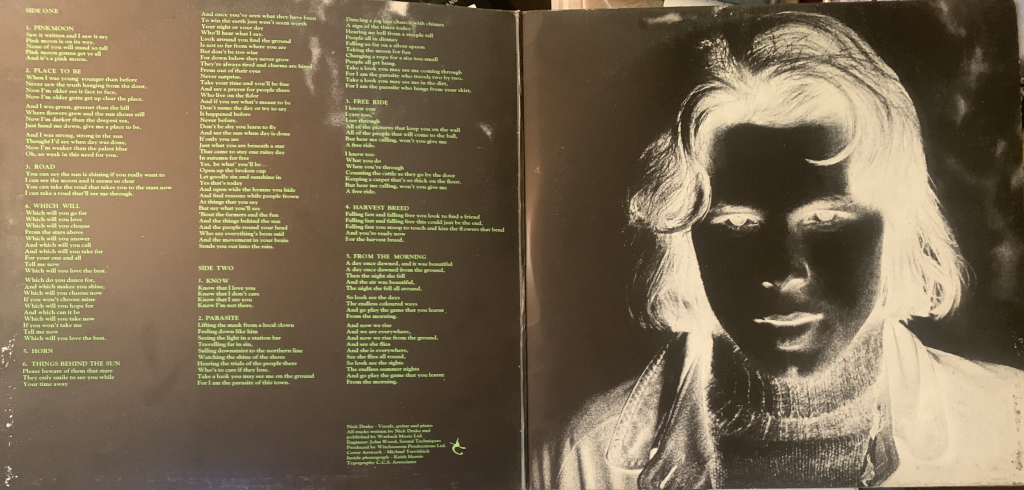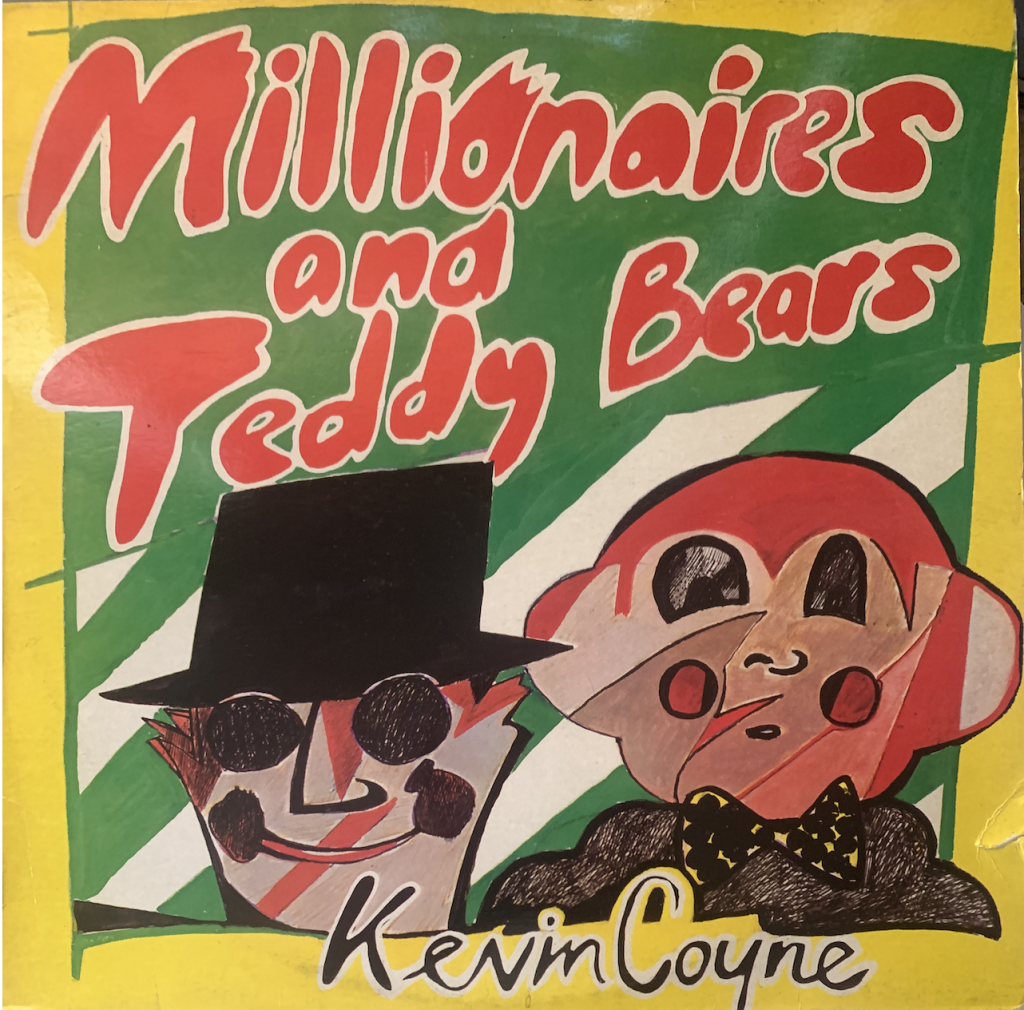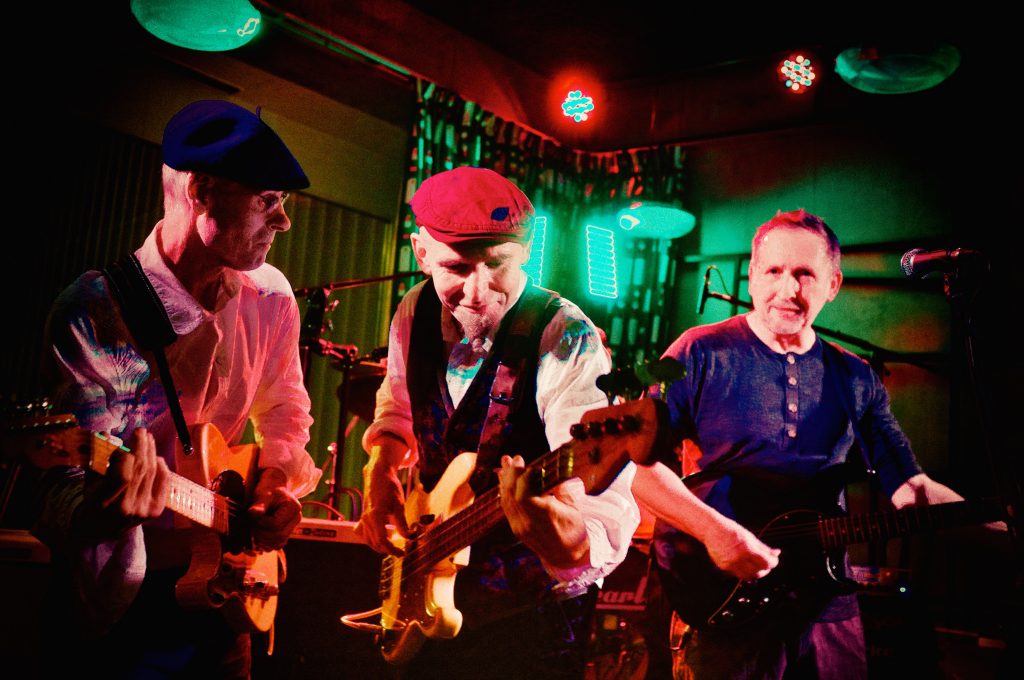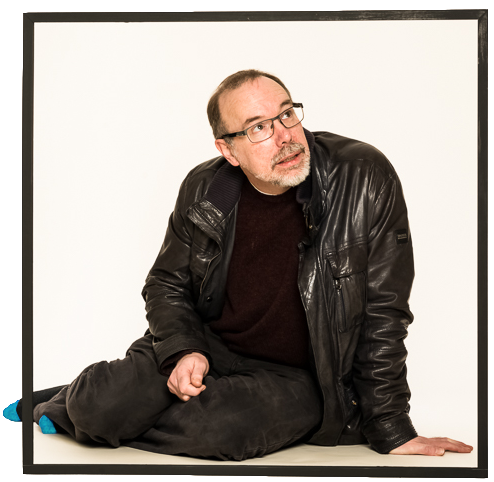An Accidental Memoir

A few years back, my friends Eve and Anthony published an original writing handbook called The Accidental Memoir. However, if you bought their book and used its pointers as the basis for writing your own memoir, there was little accidental about it. The new book that Five Leaves are about to publish is, by contrast, happened almost entirely by accident.
Some time pre-pandemic (that other world whose contours blurs more each day), Ross Bradshaw asked me to contribute an essay to one of his occasional series of themed essays, entitled ‘Rock’. I’d contributed to two of the previous three (‘Maps’ and ‘Crime’) and was happy to do so, until he told me the proviso. He wanted me to write about Nick Drake. I’d already written about Nick Drake when he was the editor of County Lit and Trevor Dann’s biography was published. Moreover, I’d already written about Drake some forty years earlier, for the Nottingham fanzine, Liquorice. Indeed, that fanzine was the reason I moved to Nottingham, where I spend more time on it that I did on my Law degree.
I said no, but Ross is a friend as well as one of my publishers (we’ve known each other for more than 40 years), so when he asked me to reconsider – his bookshop and publishers were named after Nick Drake’s first album, after all – it was hard to say argue: he had to have a piece about Drake and I was one of their authors, so it ought to be by me. Eventually, I worked out a way to do the essay and make what I had to say feel fresh. I combined Drake’s story with a memoir of my early days in Nottingham and a deep depression I fell into during my second year at university.
The Rock anthology didn’t happen, largely because of the pandemic. Then, earlier this year Ross suggested that he publish my essay as one of Five Leaves occasional pamphlets instead. It would be on the short side, for a standalone booklet, but we could add illustrations. I came back with a counter suggestion. I’d been working on an essay about the singer/songwriter Kevin Coyne, who was the person I would have chosen to write about for the ‘Rock’ anthology had I had a free hand. Like Nick Drake, Kevin was someone who struggled with a lot of demons and made powerful, original and beautiful music out of that struggle. Since his death in 2003, Kevin has been largely forgotten in this country, although Andy Kershaw did unveil a plaque in Derby a few years back. This year, a short biography appeared in Germany, where Kevin spend his final years, and became something of a hero. I used the same approach as I had to the Drake essay, combining autobiography with Kevin’s story. Here I had rather more to say than I did about Drake, as I saw Kevin live numerous times, met him more than once, and interviewed him at length in 1978.

The book was at this point called Two Musical Memoirs, and consisted of two long essays Nick Drake: Double Negative and Don’t Mention the Night: Kevin Coyne in 1978 (the Coyne title is a phrase from my favourite Coyne song, ‘The World is Full of Fools’). A lay-out was done and we looked for illustrations. Nick Drake’s sister Gabrielle and her partner Cally gave me permission to use uncropped images of his album covers (the LP images in the book are, like the ‘Pink Moon’ double inner above, all taken from my original Island albums, which are worth a few bob). Drake’s official biographer, Richard Morton Jack (whose book was originally scheduled to appear at the same time as mine as is now due next year) had interviewed me for his book and kindly read the Drake chapter, offering a couple of corrections. The Coyne family also read the section about him, gave the book their blessing and kindly provided some images. Kevin’s second wife, Helmi, also said kind things about the chapter and offered us one of Kevin’s drawings. Sadly, her email came just as the book went to press, so we couldn’t take her up on the offer. But there is some of his art in the book.

The book was due to be published back in June. Then things started to go wrong: a power failure, people getting ill, and the date began to be in doubt. We decided to go with the autumn instead. Ross asked who I would like to play at the launch. At this point, we were thinking of the usual small launch in the shop. It might be possible to persuade someone to perform some songs by Drake and Coyne, but that could easily have become a bit naff. It occurred to me that Gaffa, the Nottingham band who I used to go and see nearly every week during the period I’d been writing about, had reformed during the pandemic. I knew they were rehearsing regularly. I really wanted to see them play again – not just the old songs, quirky but catchy pop with a bit of a punk edge, but the new ones they’d recently recorded for an album called Beaks and Bones for Buttons, songs that showed a band still moving forward.

I asked Clive, the guitarist and the member who I bumped into most often, whether the band would be interested in playing the launch. They were up for it. Then something changed. A couple of weeks after this conversation, Gaffa announced a one-off reunion with their original drummer, Mick Barrett. He had long since left Nottingham but remained in close touch with lead singer and songwriter Wayne Evans. Recently, he’d been visiting and sat in on a Gaffa rehearsal, on bongos. The idea for a reunion of Gaffa’s classic line-up had formed then.
I’d already added a paragraph about Gaffa in the Coyne chapter, because they seemed to belong in it. Yet the more I thought about it, the more I realised that Gaffa deserved a chapter of their own – after all, I’d written about them more than any other band, reviewing them live and interviewing Wayne twice, 36 years apart, for my student newspaper in 1978 and for the Nottingham Post when they reformed in 2014 (though not with the classic line-up). The chapter would give me the opportunity to bring my own story up to date and, as it turned out, further explore issues to do with what constitutes artistic success. The reunion gig would form a natural conclusion.
I spoke to the three other members of the band who I hadn’t interviewed before, piecing together their chronology. I worked out what I needed to say about the group to an audience who, for the most part, would never have heard their music. I also approached NTU’s Craig Chettle to see if he could do us a deal to have the launch at an NTU venue, Antenna, which is often used for launches. Turned out Craig, like me, used to go and see Gaffa every week in the late 70s, when they had a Tuesday residency at the Imperial Hotel on St James St. He offered to let us have NTU’s state of the art music venue, Metronome (add link) for the price of Antenna. We agreed a date and I had a book to finish writing.
It’s rare that books come together this quickly. True, there were years in the 90s when I wrote five YA novels and a couple of short stories, but the publishing process that followed still took the best part of a year. I didn’t start writing the Gaffa chapter until after the gig on June 19th, and it’s the longest, most complex one in the book. But there was nothing else I had to write that couldn’t wait, so I got on with it.
Fast forward three months. This afternoon I collected the first finished copies from the bookshop and I’m about to start sending them out to people who helped me (I rarely need to use acknowledgements but this book has a very long list at the end). And it looks brilliant. I’ve never been so involved with the cover or lay-out before and between us (me, Ross and Pippa) we’ve come up with something I’m very proud of.
I had no intention of writing a memoir. Still don’t. By only writing the things about my life that link with the artists I’m discussing, I was able to limit how much I reveal, avoid self indulgence and not get bogged down in any of the many areas where it would have been easy to get sidetracked. Memoir is hard. It’s easier to make stuff up. That said, the novel I plan to write next is a historical one, where I won’t allow myself to mess with the known facts about the lives I’m recreating. I hope that readers will enjoy the memoir even if they don’t know two of the three subjects. Ironically, in his lifetime, Nick Drake had less press than either Kevin Coyne or Gaffa, but he’s now a familiar part of the pantheon and will hopefully tempt readers unfamiliar with Coyne or Gaffa. Or me, for that matter.
The book launches at Metronome on October 19th, where the BBC’s John Holmes – himself a Nottingham music legend who recently published his autobiography – will interview me. After a break, the classic line-up of Gaffa will reform to play in the second half of the evening. Please book here (you don’t need to pre-order the book or cd, by the way, there’ll be plenty on the night). Here’s a Facebook event link. The memoir is available to order now, from all good independent bookshops and online. An eBook will follow in November. If you’re outside the UK, the best place to order it is here.
Finally, here’s one of the Gaffa songs I write about in the memoir, one that I hope they’ll play this Wednesday. Hope to see you there.
